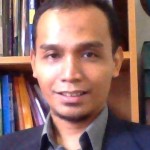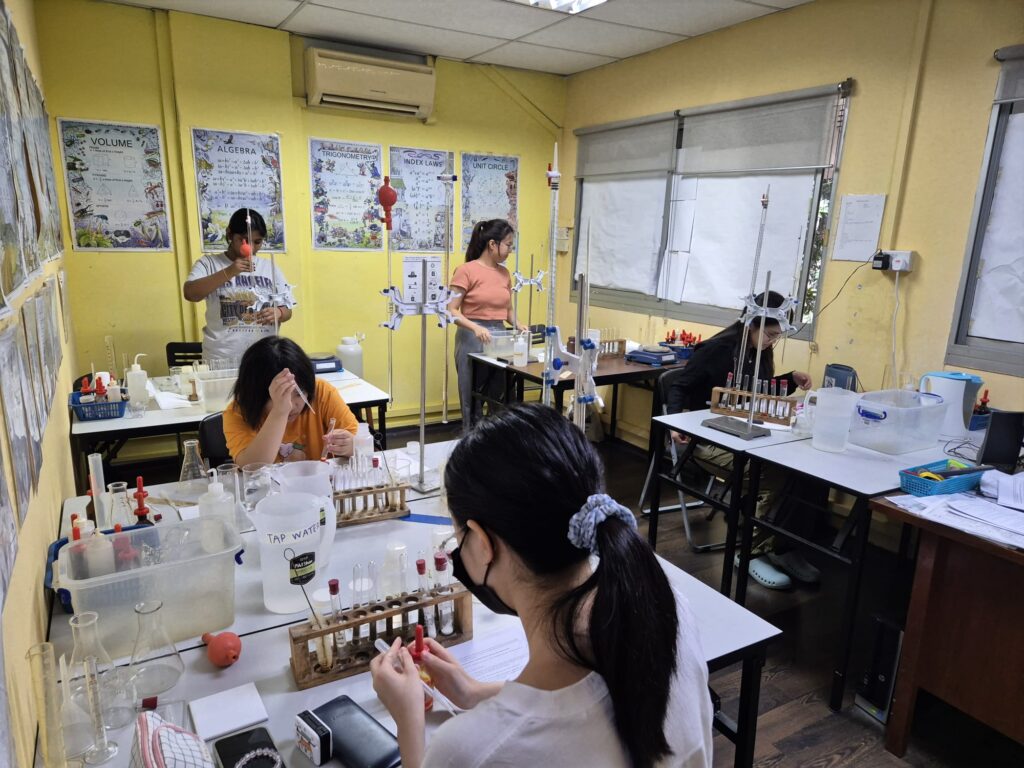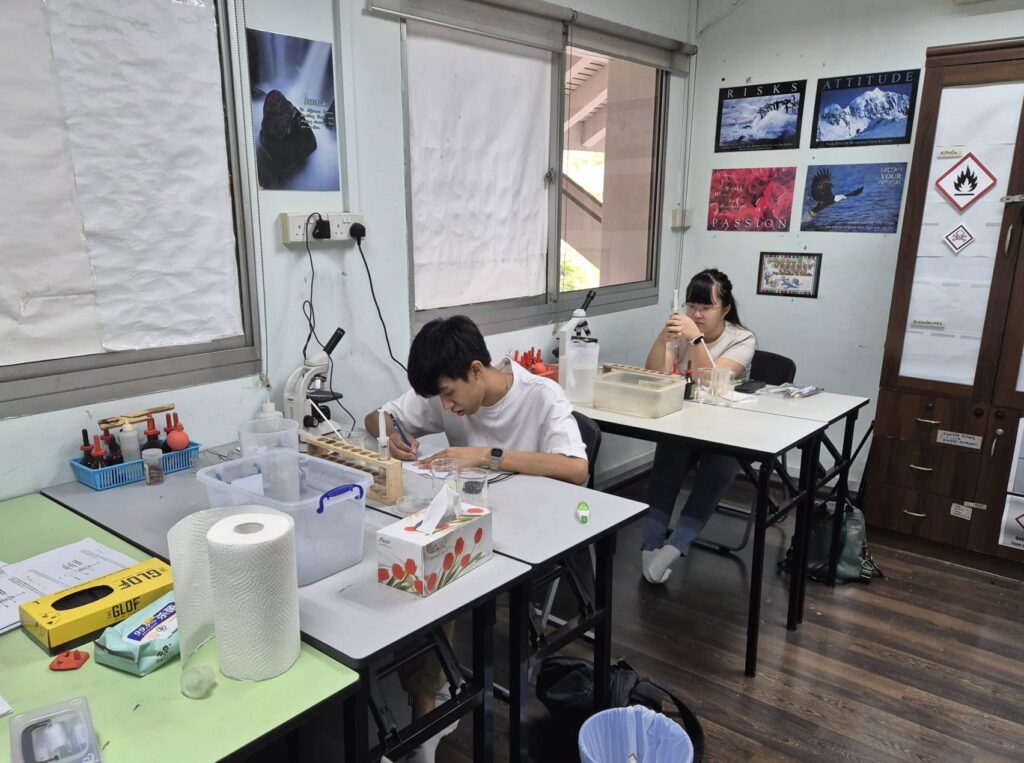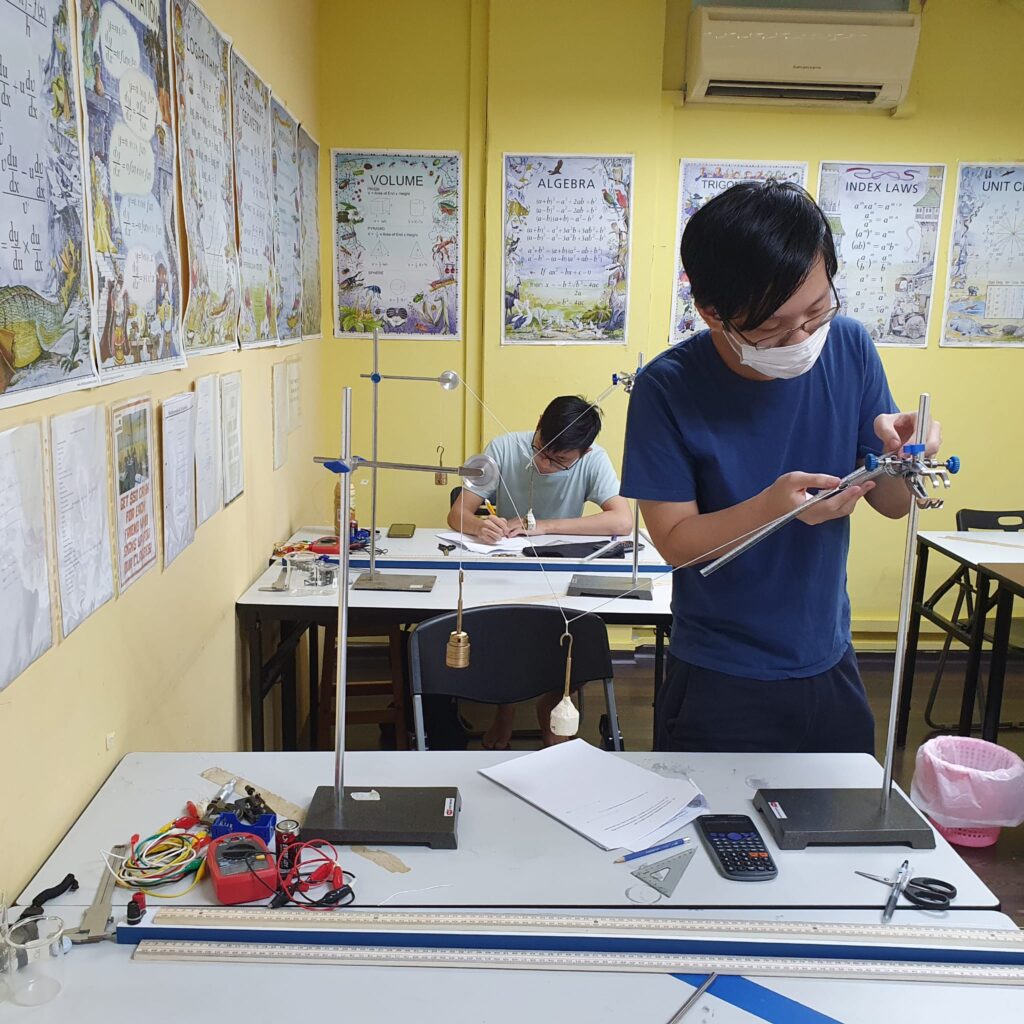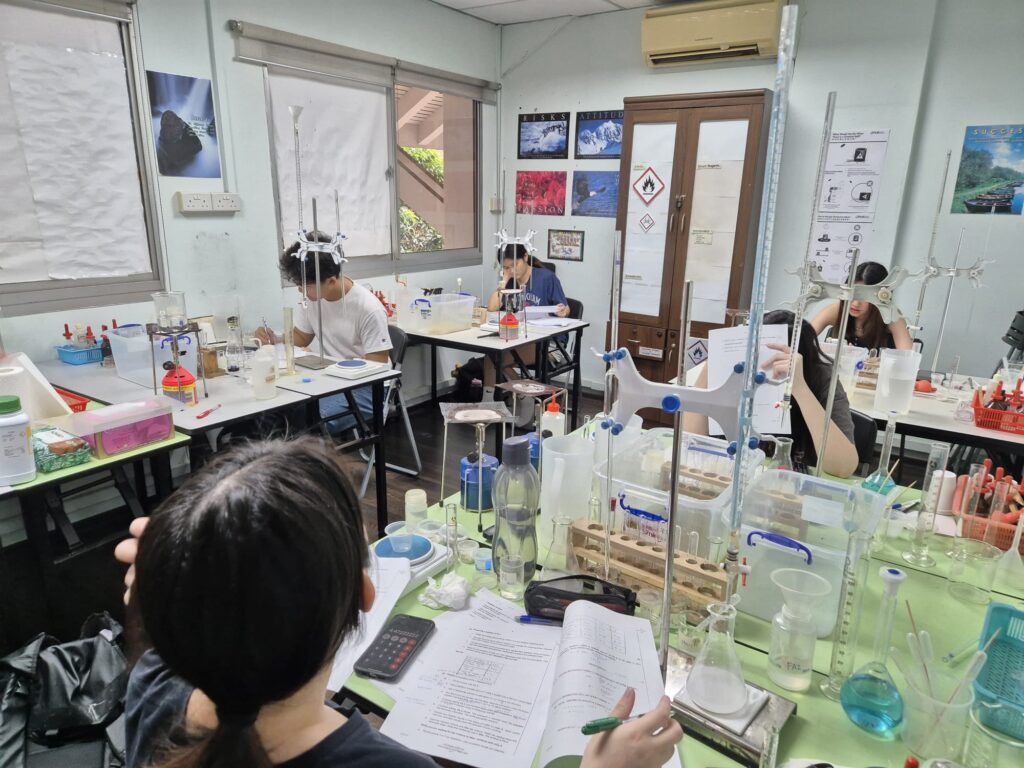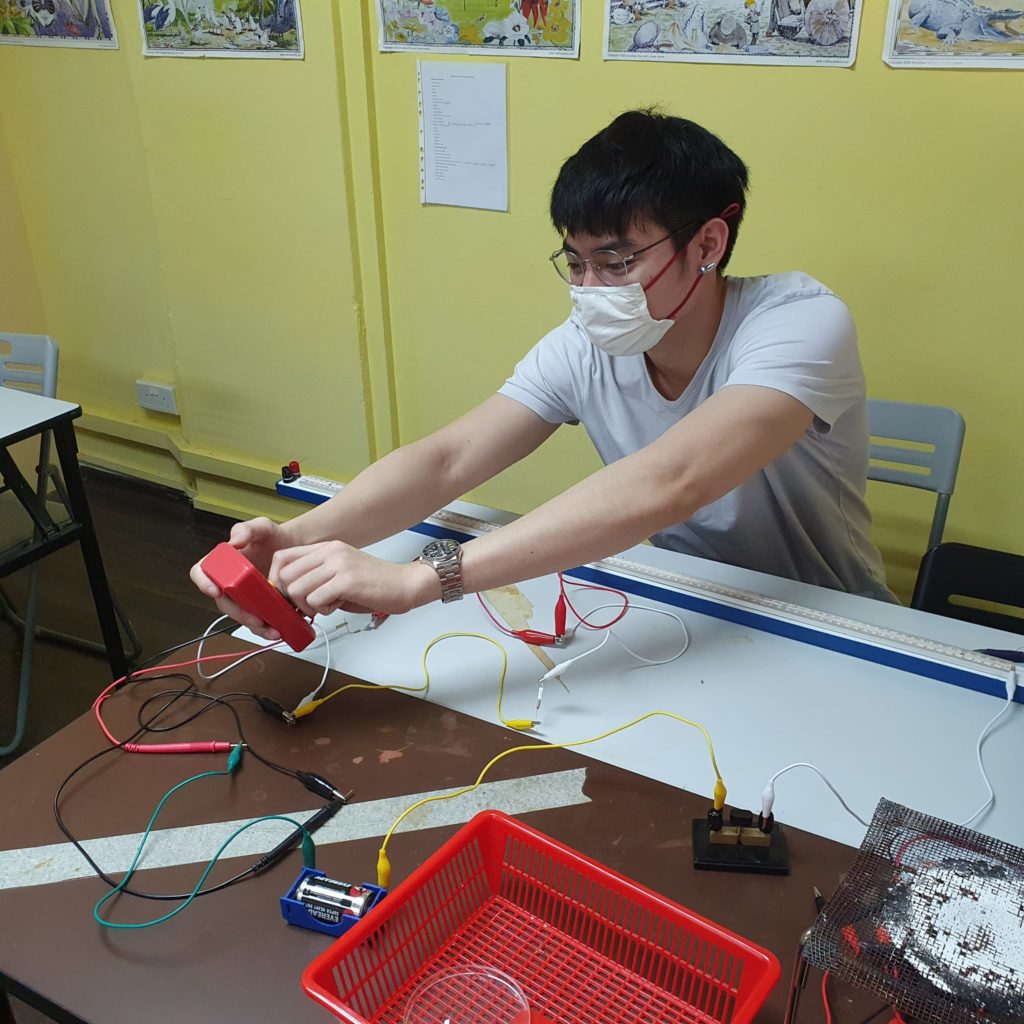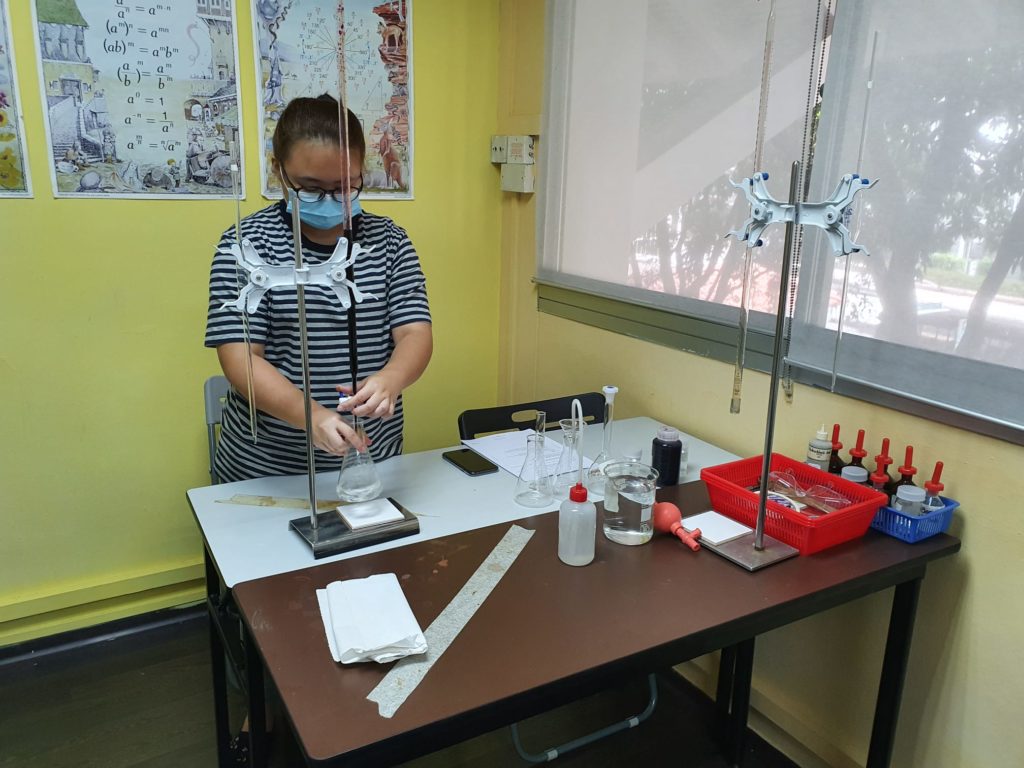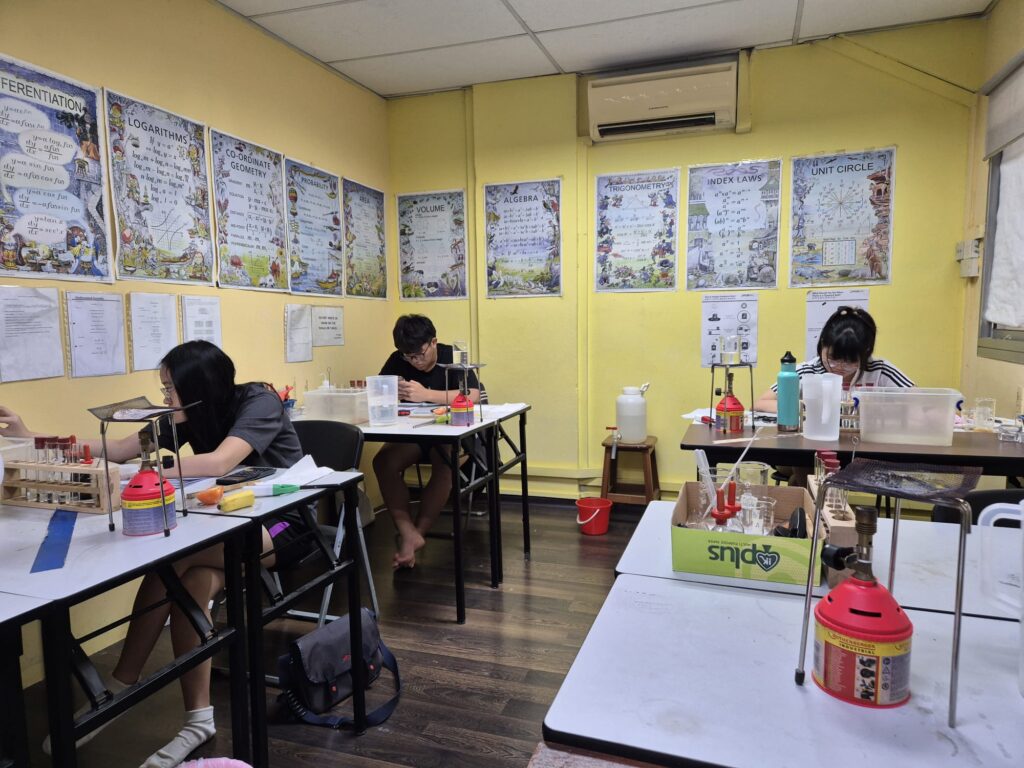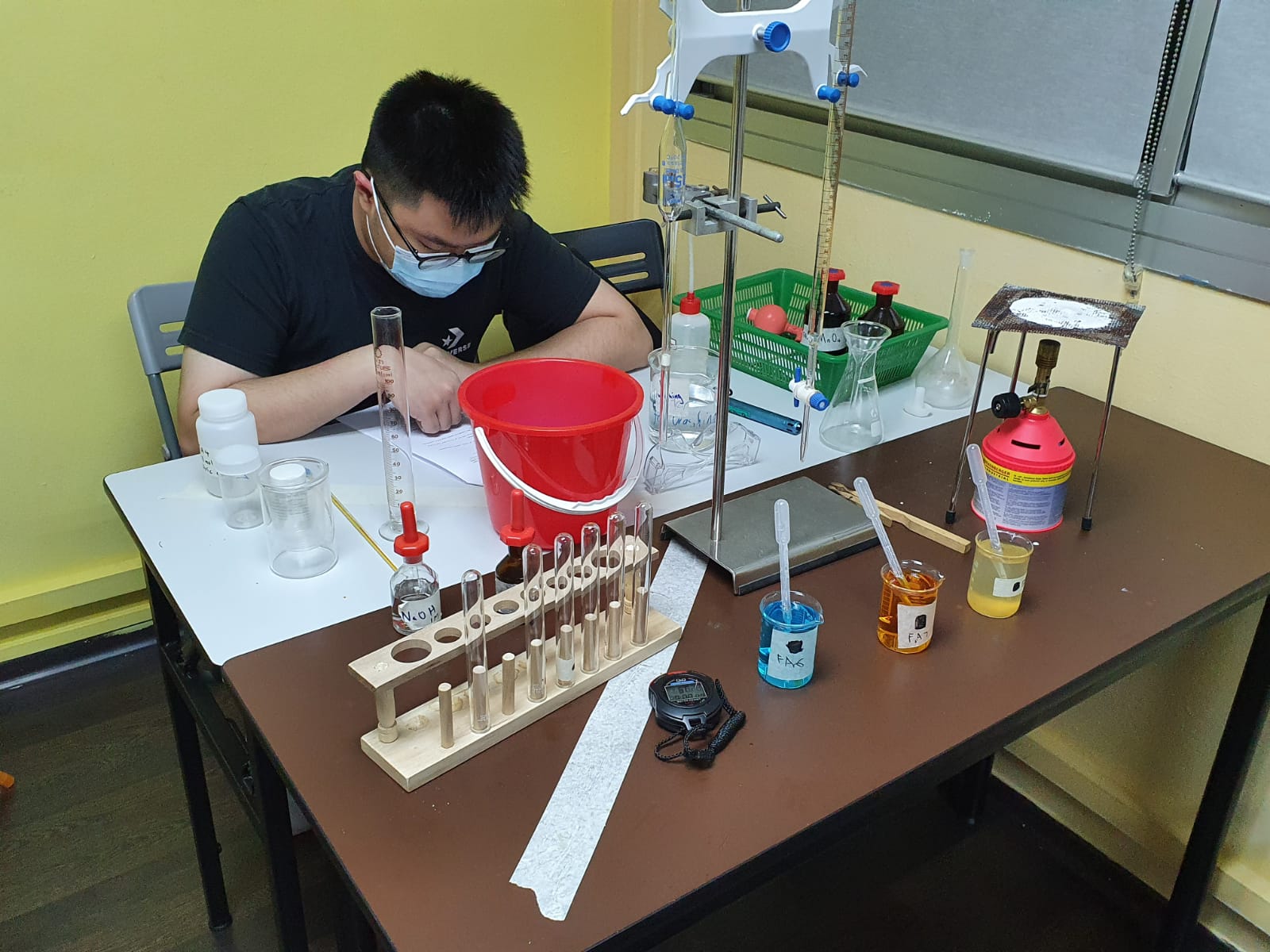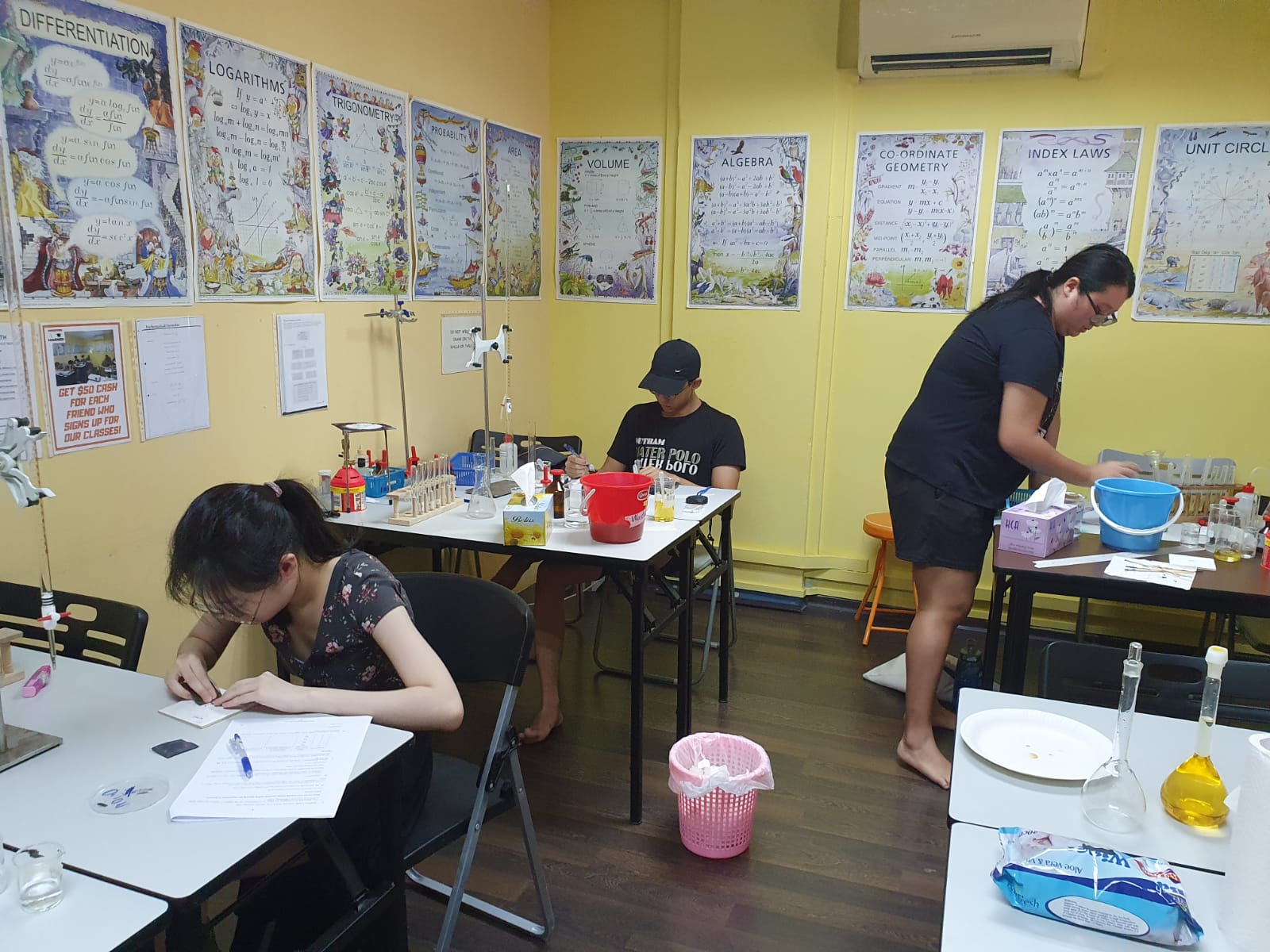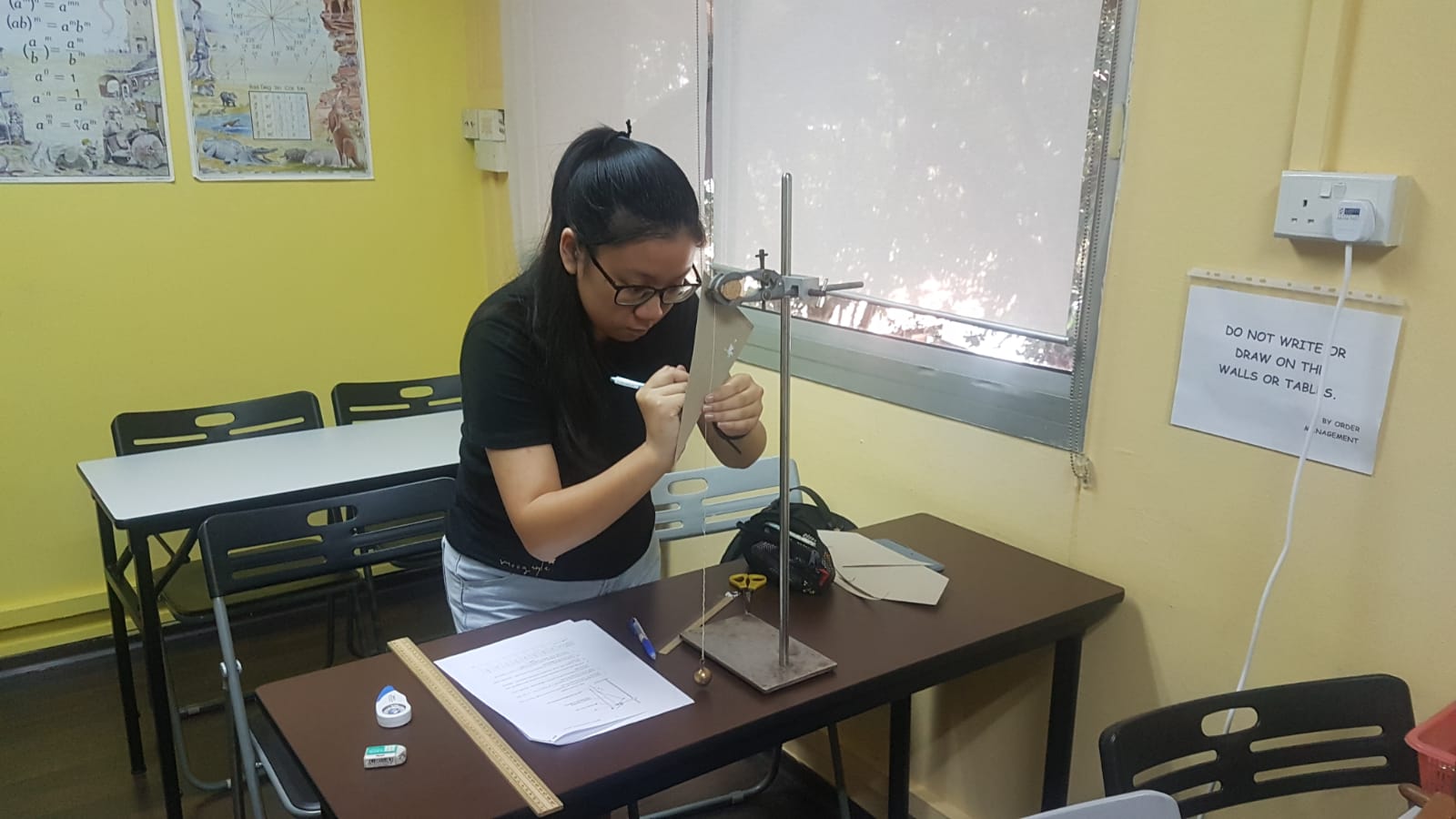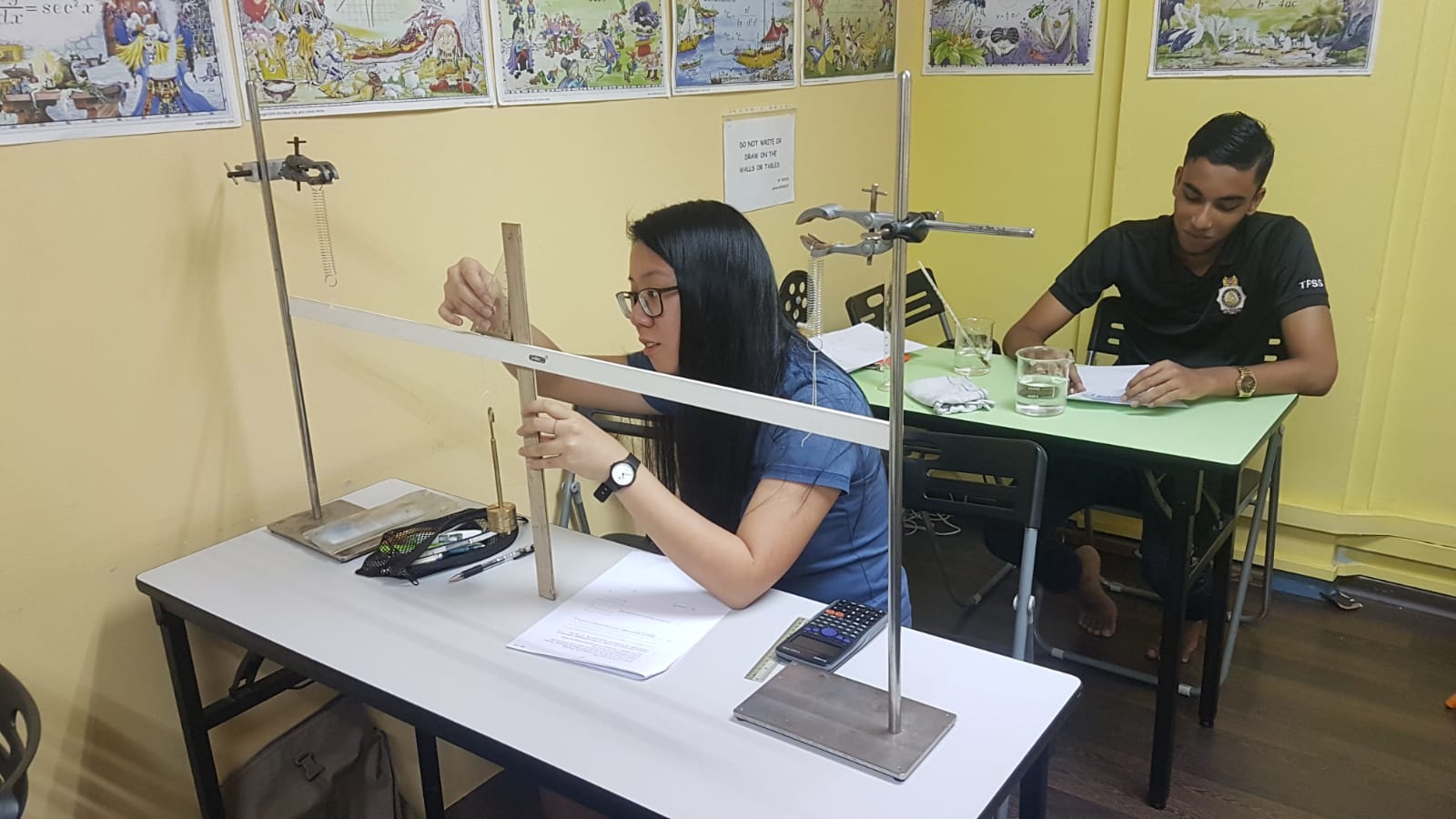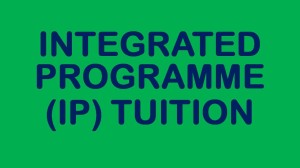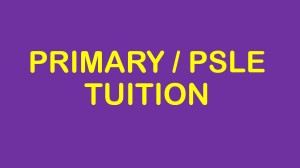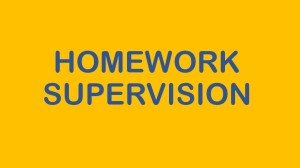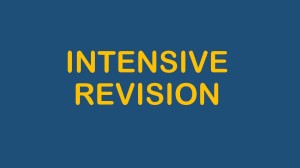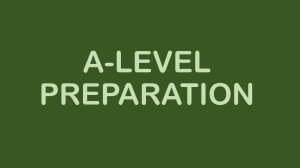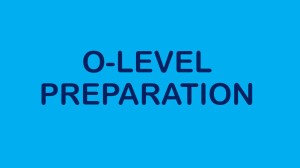For our latest timetable, click here => 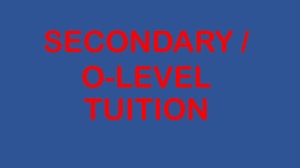
==========================================================
ORIGINAL POST(OUTDATED):
Sec 3 A. Math: (Investment amt: $180 per mth):
Thurs 5.45 to 7.15 pm;
Sun 2.15pm to 3.45 pm;
Sec 3 E. Math: (Investment amt: $180 per mth):
Tues 5.45 to 7.15 pm;
Tutor: Mr Ilyasa; M.Ed (NIE), PGDE (NIE), BSc (NUS), Ex-RI/RJC; ex-sch teacher, full-time tutor of PSLE, O and A Level Math and Physics. (h/p: 97860411)
A former secondary school teacher, Mr Ilyasa has been coaching students in ‘A’ Level (H2/H1) Physics and (H2/H1) Mathematics for more than 6 years, as well as ‘O’ Level Physics, Additional Math, Math and PSLE Math for more than 10 years. An alumnus of RI and RJC, Mr Ilyasa holds a Bachelor of Science degree with Merit from the National University of Singapore, a Postgraduate Diploma in Education with Credit from the National Institute of Education, Singapore, and a Master of Education (Curriculum & Teaching) degree also from the NIE, Singapore.
DETAILS:
Location: Blk 627 Bukit Batok Central #07-640
Average Class Size: 2-6 students
To register, kindly call or send an sms to 97860411, indicating the Student Name, the Subject and Level.
A-Level Results: What to do if you get BAD or DEAD, i.e., the ‘middle class’
I guess I have to write a bit for this group of students, who will not be allowed to redo their a-levels in their former schools (unlike students who obtained SUC for their H2 subjects), yet they’d find it difficult to be accepted into popular courses in the university.
With grades like BAD or DEAD, you might still be able to get into a local university, if you choose unpopular courses such as engineering, social work or nursing (I’m not sure if a degree in nursing is available in a local university, but if it does, you should seriously consider it). It also depends on what you had obtained your grade A for. It’s not that these courses don’t require academically bright students (can you imagine the impact to society of incompetent engineers, nursing managers or social workers?), but they are somehow very unpopular with university applicants in Singapore.
With a grade like BAD, you might even get a place in an arts or science faculty (but beware, these faculties have their pride too), and if you possess good O-Level results as well, you might even get a place in the NIE to train to become a teacher (to be admitted to NIE, you must have been at least in the top one-third of your O-level cohort; assuming NIE or MOE has not changed this requirement).
Grades like CCD or CDD might still get you into a university, for very unpopular courses. I’ve not heard of anyone getting into a uni with DDD though, or with anything lower. DEAD might get you somewhere because of the A, if there are very few good competitors for that same course. (Btw, if u obtained ACE, don’t say A,C,E, when anyone asks, just say Ace, so it sounds like AAAs). : )
So should you still accept the offer of a local uni if the course offered is not what you really want? Or should you just retake your A-Levels? If I were you, I will not retake the A-Levels if my grades can send me into any general course in an accredited or recognised university. A general course is typically one of those found in the faculty or school of science or arts. Yes, it’s ok to do an arts or science course or even engineering if you can’t get into the more popular courses such as medicine, law, accountancy and business. Why?
Please don’t forget there is such a thing as a Postgraduate First Degree, or Graduate Programs Leading To A First Degree. WHAT IS MORE IMPORTANT IS TO FIRST GET INTO ANY RECOGNISED UNIVERSITY AND WORK HARD TO GET AT LEAST A SECOND UPPER HONOURS DEGREE. Then you can apply to any graduate first degree programme. For example, if you want to be a doctor, lawyer or accountant, you can still become one if you have a very good honours first degree, through the Duke-NUS Doctor of Medicine (MD) course, SMU’s Jurist Doctor (JD) program or SMU’s Master of Professional Accounting (MPA) program, respectively. Or you can apply to any postgraduate program you like, whether it leads to a first degree, master degree or even a direct Ph.D program.
My point is, your first degree may not determine your career, and it need not be in something YOU THINK you are passionate about. It is more important to get into ANY recognised degree programme, and work very hard to achieve at least a 2nd Upper Hons degree ( I didn’t get one, so I had a hell of a time trying to get into a master degree programme. Luckily, NTU gave me a chance and I proved myself right about myself by getting a CGPA of 4.55, out of 5, for my master degree program. I’m still angry with NUS for thinking that I wasn’t good enough for their postgrad programs. Now I intend to a do Ph.D program, and it’ll be interesting to see which university would take me in).
Please also remember that some employers, like banks and the govt, will take you in if you have a very good first degree in ANY discipline. Hence please don’t be fussy about your first degree. I’ll always remember what my father told me when I asked him what course I should do at uni. He said,”Just get yourself into a university and graduate”.
Lastly, dont be fussy about your first job too. In today’s economic environment, having a job is better than having none at all.
Good luck!
Related post: What to do if your A-level results are bad …
A-LEVEL TUITION
A-Level BIOLOGY (H1/H2) – Whatsapp 88668423 (Specialist)
A-Level CHEMISTRY (H1/H2) – Whatsapp 88668423 (Specialist)
GENERAL PAPER BONUS SESSIONS
The registration for ‘A’ and ‘O’ Level exams as a private candidate usually opens around early to mid-April (Please check SEAB website). If you are registering for a Science subject (Physics, Chemistry, Biology or Combined Sciences), at the time of registration in April, you will be asked whether you have done any science practical training in any school, centre, or institute.
Thus if you are considering Singapore Learner as your science practical training provider, you are strongly advised to register with us and begin your science practical sessions for each subject BEFORE APRIL for us to certify that you have attended basic science practical training. Thus it is recommended that you commence practical training with us in Jan/Feb. Please note students usually do about 10 practical sessions per subject to be competent in practicals.
The following is taken from SEAB website:
“If you are registering for a Science subject with a practical paper, you:
• Must have sat the same Science subject(s) previously, OR
• are currently attending or will be attending a course of instruction in Science practical at any institute/school. You must complete the course of instruction in Science practical at the institute/school enrolled in. You are required to declare that you have fulfilled the above requirements at the point of registration. Registration for the subject may be cancelled without a refund of the examination fees if a false declaration is made.“
LOOKING FOR THE BEST PLACE TO DO YOUR SCIENCE PRACTICALS? JOIN US!
We provide A-Level / H2 / IP and O-Level Physics, Chemistry, Biology and Science (Physics/Chemistry/Biology) Practical Training for private / school candidates and homeschoolers, for both local (eg. H2, Singapore-Cambridge) and international exams (CIE, IB, IGCSE).
*Enjoy great discounts on fees if your lab sessions start in February! Send a message to 88765498 for details.
*Or attend (by appointment) our SINGAPORE LEARNER OPEN HOUSE on Sat 22/2 or Sun 23/2 (both 2pm-5pm) to find out more about our Science Academy (for private candidates) or our Science Practical Training & Enrichment Programme (for all students from Primary to A-Level). Attendees will get to meet our teachers and view our Science labs and apparatus. In addition, students who sign-up on the spot will be offered our generous January fee discount scheme while others may opt to receive our $50 fee discount voucher instead (2 per practical student). To book an appointment, send a message to 88765498. Hurry, appointment slots are limited. To avoid disappointment, book now!
Our Main Practical Programmes:
A-LEVEL H2 PRACTICALS (Available Jan to Oct)
PRACTICAL CRASH COURSES (Mar, Jun, Sep and Oct)
MOCK EXAMS FOR SCIENCE PRACTICAL (Sep and Oct)
Other Practical Programmes We Provide:
CIE A-LEVEL PRACTICALS
INDIVIDUAL 1-1 PRACTICAL COACHING
Why Us?
-
Our teachers are highly qualified and very experienced, and we actually TEACH you good practical techniques.
-
We have been a one-stop comprehensive science practical centre providing solid practical training for ALL THREE sciences and for all levels and streams since 2017.
-
Our laboratory apparatus are exam-grade and the same as those used in MOE schools and our chemicals are all NEA-approved.
-
We have a structured practical training programme catering to the needs of both beginners and experienced students.
-
We have a small class size so that the teacher is able to observe the actions of each student more closely and demonstrate the correct practical techniques where and when necessary.
You may need science practical lessons if you are a private candidate who needs a science lab and apparatus as well as practical coaching, or you are a school candidate who needs more practical training to get top grades.
Singapore Learner @ Bukit Batok
Blk 644, Bukit Batok Central, #01-68. S(650644).
Tel: +(65) 6569 4897, +(65) 88765498
Email: singaporelearner@gmail.com
If you wish to visit us, kindly call or sms first. Thank you.
Improvement in a student’s math result …
Daniel, one of A. Math tutees, showed me his class test result yesterday: 34/40. The test was on Indices and Surds, Wow, excellent, I said to him. Daniel is from the N(A) stream, and usually fails his Math tests. That he could obtain 34/40 and top his class in just a few weeks of tuition was phenomenal. So I started reflecting on what went right, because there are many students, even those from top schools, who do not make such a giant leap in such a short amount of time.
So what was the major factor contributing to Daniel’s significant improvement? Well, it’s not some secret special technique. In fact, it’s a well-known technique that some students just don’t want to use – ask many, many questions, even “silly” ones, about the same topic until one is satisfied that understanding has been achieved. Daniel even questions me when he doesn’t understand the steps I show him, whereas many students simply copy or write down my solution. Daniel sometimes takes a while to process the information I give to him; he will pause and ponder, and then sheepishly asks a basic question. He will even ask questions periodically to affirm that his steps are correct.
Students need to make meaning out of what they hear or see; it’s not enough to just listen to teachers or observe what they do in class. And you make meaning when you have a dissonance in your mind; some pieces of the jigsaw puzzle don’t fit and you have the courage to ask and then ponder again.
Regarding asking questions, I have one advice though: you must attempt to answer your own questions first, for the struggle to answer your own questions will make it easier for you to understand another person’s explanation. : )
Good luck!
Rgds,
Ilyasa
Announcement of Release (2013) of A-Level (2012) Results
I think it should be out next week (probably Friday 1 Mar) (It is now confirmed to be on Fri 1 Mar). For those of you who receive good news, you may want to click on one of the links below before you end up in the ‘wrong’ university:
1. List of recognised Universities and Post-secondary Institutes with campuses in Singapore
2. List of Approved Universities for Admission to the Singapore Bar
3. List of Registrable Basic Medical Qualifications for practice in Singapore
For those who receive bad news, you may want to click on the following link for some consolation and advice:
4. What to do if your A Level results are bad.
Wish you all the best!
Rgds,
Ilyasa
Related pages:
(2) JC Math Tuition
Related articles:
(a) Between JC and Poly.
(b) What subject combination to choose in JC.
A former MOE school teacher, Mr Ilyasa has been coaching students in ‘A’ Level (H2/H1) Physics, (H2/H1) Mathematics and (H2/H1) Economics for more than 6 years, as well as ‘O’ Level Physics, Additional Math, Math and PSLE Math for more than 10 years. An alumnus of RI and RJC, Mr Ilyasa holds a Bachelor of Science degree with Merit from the National University of Singapore, a Postgraduate Diploma in Education with Credit from the National Institute of Education, Singapore, and a Master of Education (Curriculum & Teaching) degree also from the NIE, Singapore.
Good Economics article to read, for those doing H2 or H1 Econs
If you are a H2 or H1 Econs student, please take time to think through the following economics article:
http://sg.news.yahoo.com/blogs/singaporescene/land-people-fit-singapore-economy-025020996.html
It’s important that you keep abreast of the economic challenges facing Singapore, our unique situation, and hence our micro and macro economic policies.
As an ex-Econs teacher and currently tutor, I dare say that our H2 and H1 Economics exams are the hardest in the world for 18 year olds. For microeconomics, you are expected to think like a business owner or CEO, and for macroeconomics, you are expected to think like a minister. Our Economics exam papers assume that you know and understand every basic economic concept, and you are straightaway expected to apply your Econs knowledge to analyse and answer case studies and essay questions.
Good luck.
Rgds,
Ilyasa
For our latest timetable, click here => 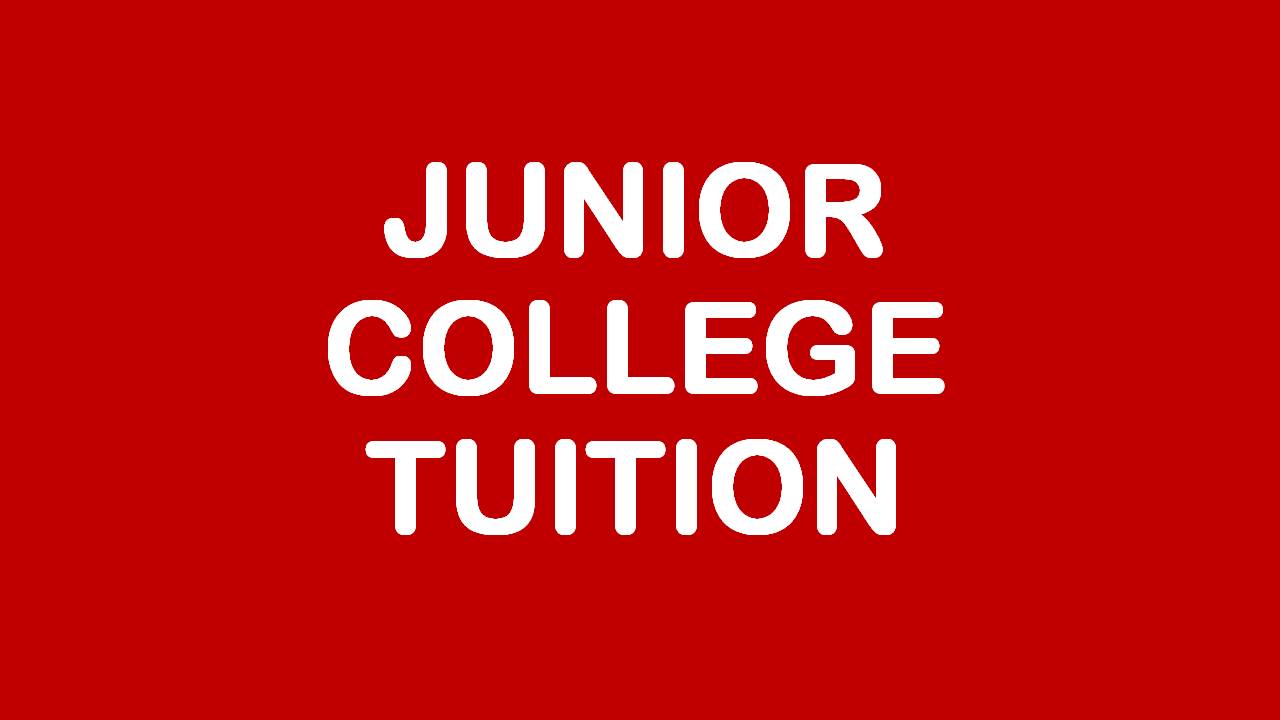
“Models (drawing of) destroyed my life.” – Sec 3 Math student
I laughed when he said it. But it’s a significant statement by my Sec 3 Math student made two days ago. It’s something I’ve been warning parents and students about, in my earlier article Beware the Critical Years in Math.
This Sec 3 Math tutee is from a top government secondary school in the west. Being mathematically intelligent, he had found it easy to use models-drawing to solve PSLE Math problems. But he had a hard time coping with Algebra in Sec 1 and Sec 2, and it’s affecting both his Math and A. Math performance now. This situation is not unique to him.
The best years of learning by your brain is probably from the time you were born to just before your teenagehood. Singaporeans around my age or older were taught to use algebraic equations to solve math problems at the PSLE back then. I remember using simultaneous equations in 1984 to solve today’s “guess & check” problems in the PSLE. Thus our algebraic skills were good and it helped us, even those who didn’t do well at the PSLE, in doing O-Level and A-Level Math.
Algebra is SO important for Math at O-level and A-level, yet our dear MOE chooses not to introduce it for problem-solving in today’s PSLE. I still don’t understand why.
It is true that some young students may not be able to understand Algebra, due to it being very abstract. But it is also true that some young students are not visually or spatially intelligent enough to draw, cut and move rectangles to solve problems. For eg, what has rectangles got to do with mass or age? (you know, those problems involving age relationships between persons or mass relationships between objects). Using rectangles or boxes to represent age or mass is just as ridiculous or abstract as using letters such as ‘x’ and ‘y’ as in algebra.
The least the MOE should do is to allow the teaching of BOTH methods to solve problems. Since those boxes start appearing in P2 or P3, algebraic expressions should also be introduced at P2 or P3, algebraic expansion in P4, algebraic factorisation in P5, and algebraic equations in P6. Sec 1 students can straightaway start on algebraic fractions etc. Do we lose anything by introducing algebra earlier in our math curriculum?
I’m glad I started my Sec 1 Algebra course for post-PSLE students in Nov and Dec last year (see Sec 1 Algebra Headstart Holiday Enrichment Programme for post-PSLE students). I think students still don’t realise how ill-prepared they are for math in sec school and JC. I dare say that if you are weak in your S1 and S2 algebra, you don’t have to take Math anymore.
Good Luck.
Rgds,
Ilyasa
(M.Ed., PGDE, B.Sc, ex-teacher, full-time tutor: 97860411)
_______________________________________
TUITION CLASSES:
_______________________________________________________________
EDUCATIONAL SERVICES:
______________________________________________________________
By EX-MOE TEACHERS & EXPERIENCED TUTORS
@ BLK 644, BUKIT BATOK CENTRAL, #01-68. S(650644).
CALL 65694897 OR SMS 98530744 OR 97860411.
Sec 4 Physics Reflections 03/02/13 – Current Electricity
Today, I asked them a few questions to improve their conceptual understanding of electricity:
(1) What is the difference between e.m.f and potential difference?
(2) What is the difference between resistance and resistivity?
(3) How do you derive the unit for resistivity?
(4) Why does the resistance of a metallic conductor increase when its temperature increases?
(5) Why is the ammeter connected in series to a resistor but the voltmeter is connected in parallel?
Some points to note:
(1) Resistance is NOT the gradient of the V-I graph.
(2) The I-V and V-I graphs of a conductor may be different and you’ll need to understand why and explain the difference.
Rgds,
Ilyasa, M.Ed, PGDE, ex-MOE Math and Physics teacher (hp: 97860411)
=============================================================
For our latest timetable, click here => 
JC 2/1 H2/H1 A-Level Economics Tuition for 2013
For our latest timetable, click here => 
=============================================================
ORIGINAL POST (OUTDATED):
(1) JC2 H2 Economics: (Investment amt: $320 per month)
Sat 7.00 pm to 9.00 pm
(2) JC2 H1 Economics: (Investment amt: $320 per month)
Sun 7.00 pm to 9.00 pm;
(3) JC1 H2 Economics: (Investment amt: $320 per month)
(upon request)
(4) JC1 H1 Economics: (Investment amt: $320 per month)
(upon request)
DETAILS:
Location: Blk 627 Bukit Batok Central #07-640
Tutor(s): Mr Jay Lim, Master of International Management, ex-banker, experienced full-time tutor.
Content: A-Level micro and macro economics, directed readings, case studies, examples from real life and current affairs.
Focus: How to score in economics essays, must-have skills for handling economics case studies, metacognition in economics, thinking the economists’ way.
Class Size: 2-6 students
To register, kindly call, or send an sms to 97860411, indicating the Student Name, Subject and Level.
Related links:
(1) Economics Revision Package
(2) General Paper Resource & Practice Package
Sec 4 Chemistry Tuition By Experienced Tutors
For our latest timetable, click here => 
=============================================================
ORIGINAL POST (OUTDATED):
Sec 4 Pure Chemistry: (Investment amt: $180 per mth).
Mon 7.45 pm to 9.15 pm;
Sat 10.45 am to 12.15 pm;
Sun 12.30 pm to 2.00 pm;
Sun 2.15pm to 3.45 pm;
Tutor(s):
Mr Anthony H.: SMU undergrad who scored A for A-level Chemistry
Mr Tan J. D. : NTU undergrad, alumnus of Hwa Chong Institution, who scored A in A-level Chemistry
DETAILS:
Location: Blk 627 Bukit Batok Central #07-640
Average Class Size: 2-5 students
To register, kindly call or send an sms to 97860411, indicating the Student Name, the Subject and Level.
List of ‘Top’ Courses of Polytechnics (2012) in Singapore by net Cut-Off ELR2B2 aggregate
SCIENCE PRACTICAL TRAINING
O-LEVEL PHYSICS PRACTICAL
O-LEVEL CHEMISTRY PRACTICAL
O-LEVEL BIOLOGY PRACTICAL
O-LEVEL SCIENCE (PHYSICS) PRACTICAL
O-LEVEL SCIENCE (CHEMISTRY) PRACTICAL
O-LEVEL SCIENCE (BIOLOGY) PRACTICAL
The table below shows the list of top or popular courses of Polytechnics in Singapore by net cut-off ELR2B2 aggregate. The net ELR2B2 aggregate score includes CCA Bonus Points.
| Course | Course Code | Polytechnics | 2012 JAE COP |
| International Business | N85 | Ngee Ann | 6 |
| International Business | S36 | Singapore | 7 |
| Biomedical Science | S98 | Singapore | 8 |
| Biomedical Science | N59 | Ngee Ann | 9 |
| Veterinary Bioscience | N90 | Ngee Ann | 9 |
| Arts Business Management | N91 | Ngee Ann | 9 |
| Banking & Financial Services | N53 | Ngee Ann | 9 |
| Engineering Science | N93 | Ngee Ann | 9 |
| Psychology Studies | N77 | Ngee Ann | 9 |
| Psychology Studies | T48 | Temasek | 9 |
| Molecular Biotechnology | N49 | Ngee Ann | 10 |
| Tourism & Resort Management | N72 | Ngee Ann | 10 |
| Mass Communication | N67 | Ngee Ann | 10 |
| Biotechnology | S72 | Singapore | 10 |
| Pharmacy Science | N73 | Ngee Ann | 11 |
| Accountancy | N51 | Ngee Ann | 11 |
| Business Studies | N45 | Ngee Ann | 11 |
| Animation & 3D Arts | N92 | Ngee Ann | 11 |
| Film, Sound & Video | N82 | Ngee Ann | 11 |
| Banking & Financial | S76 | Singapore | 11 |
| Business Innovation and Design | S34 | Singapore | 11 |
| Creative Writing for Television and New Media | S41 | Singapore | 11 |
| Biomedical Science | T27 | Temasek | 11 |
| Veterinary Technology | T45 | Temasek | 11 |
| Business & Social Enterprise | N79 | Ngee Ann | 12 |
| Child Psychology & Early Education | N86 | Ngee Ann | 12 |
| Advertising & Public Relations | N87 | Ngee Ann | 12 |
| Chinese Media & Communication | N88 | Ngee Ann | 12 |
| Applied Chemistry with Pharmaceutical Science | S64 | Singapore | 12 |
| Accountancy | S75 | Singapore | 12 |
| Business Administration | S71 | Singapore | 12 |
| Human resource Management with Psychology | S48 | Singapore | 12 |
| Tourism & Resort Management | S55 | Singapore | 12 |
| Aeromautical Engineering | S88 | Singapore | 12 |
| Applied Drama and Psychology | S43 | Singapore | 12 |
| Music & Audio Technology | S97 | Singapore | 12 |
| Accounting & Finance | T02 | Temasek | 12 |
| Aviation Management Services | T04 | Temasek | 12 |
| Accountancy & Finance | C98 | Nanyang | 13 |
| Chemical & Biomolecular Engineering | N56 | Ngee Ann | 13 |
| Hotel & Leisure Facilities Management | N40 | Ngee Ann | 13 |
| Business Information Technology | N61 | Ngee Ann | 13 |
| Aerospace Technology | N65 | Ngee Ann | 13 |
| Optometry | N83 | Ngee Ann | 13 |
| Chinese Studies | N70 | Ngee Ann | 13 |
| Chemical Engineering | S70 | Singapore | 13 |
| Perfumery and Cosmetic Science | S38 | Singapore | 13 |
| Nutrition, Health & Wellness | S44 | Singapore | 13 |
| Financial Informatics | S46 | Singapore | 13 |
| Optometry | S67 | Singapore | 13 |
| Media and Communication | S86 | Singapore | 13 |
| Biotechnology | T31 | Temasek | 13 |
| Communications & Media Management | T40 | Temasek | 13 |
| Law & Management | T09 | Temasek | 13 |
| Early Childhood Studies | T54 | Temasek | 13 |
| Digital Forensics | T55 | Temasek | 13 |
| Banking & Financial Services | C96 | Nanyang | 14 |
| Dental Hygiene & Therapy | C72 | Nanyang | 14 |
| Social Sciences (Social Work) | C47 | Nanyang | 14 |
| Early Childhood Education | N66 | Ngee Ann | 14 |
| Multimedia & Animation | N55 | Ngee Ann | 14 |
| Food, Science & Technology | S47 | Singapore | 14 |
| Architecture | S66 | Singapore | 14 |
| Hotel & Leisure Facilities Management | S95 | Singapore | 14 |
| Integrated Events & Projects Management | S50 | Singapore | 14 |
| Aerospace Electronics | S90 | Singapore | 14 |
| Bioengineering | S58 | Singapore | 14 |
| Infocomm Security Management | S54 | Singapore | 14 |
| Visual Communication and Media Design | S93 | Singapore | 14 |
| Pharmaceutical Science | T25 | Temasek | 14 |
| Aerospace Engineering | T51 | Temasek | 14 |
| Business Intelligience & Analytics | T57 | Temasek | 14 |
| Visual Communication | T24 | Temasek | 14 |
| Medicinal Chemistry | C45 | Nanyang | 15 |
| Pharmaceutical Sciences | C65 | Nanyang | 15 |
| Mass Media Management | C93 | Nanyang | 15 |
| Real Estate Business | N48 | Ngee Ann | 15 |
| Sustainable Urban Design & Engineering | N89 | Ngee Ann | 15 |
| Aerospace Electronics | N75 | Ngee Ann | 15 |
| Audio-visual Technology | N76 | Ngee Ann | 15 |
| Biomedical Engineering | N60 | Ngee Ann | 15 |
| Financial Information | N81 | Ngee Ann | 15 |
| Materials Science | S37 | Singapore | 15 |
| Environmental Management & Water Technology | S52 | Singapore | 15 |
| Engineering with Business | S42 | Singapore | 15 |
| Business Information Technology | S82 | Singapore | 15 |
| Digital Animation | S35 | Singapore | 15 |
| Business/Logistics & Operations Management/ Marketing | T01 | Temasek | 15 |
| Hospitality & Tourism Management | T08 | Temasek | 15 |
| Apparel Design & Merchandising | T20 | Temasek | 15 |
Related Links:
(1) List of ‘Top’ Secondary Schools (2012) in Singapore by median PSLE aggregate score (2011)
(2) List of ‘Top’ Primary Schools (2012) based on GEP classes and Awards achieved.
(3) List of ‘Top’ Secondary School (2012) in Singapore by Cut-Off PSLE aggregate score (2011)
Ilyasa, M.Ed., PGDE, full-time tutor of Math & Physics (h/p: 97860411)
_______________________________________
TUITION CLASSES:
_______________________________________________________________
EDUCATIONAL SERVICES:
______________________________________________________________
